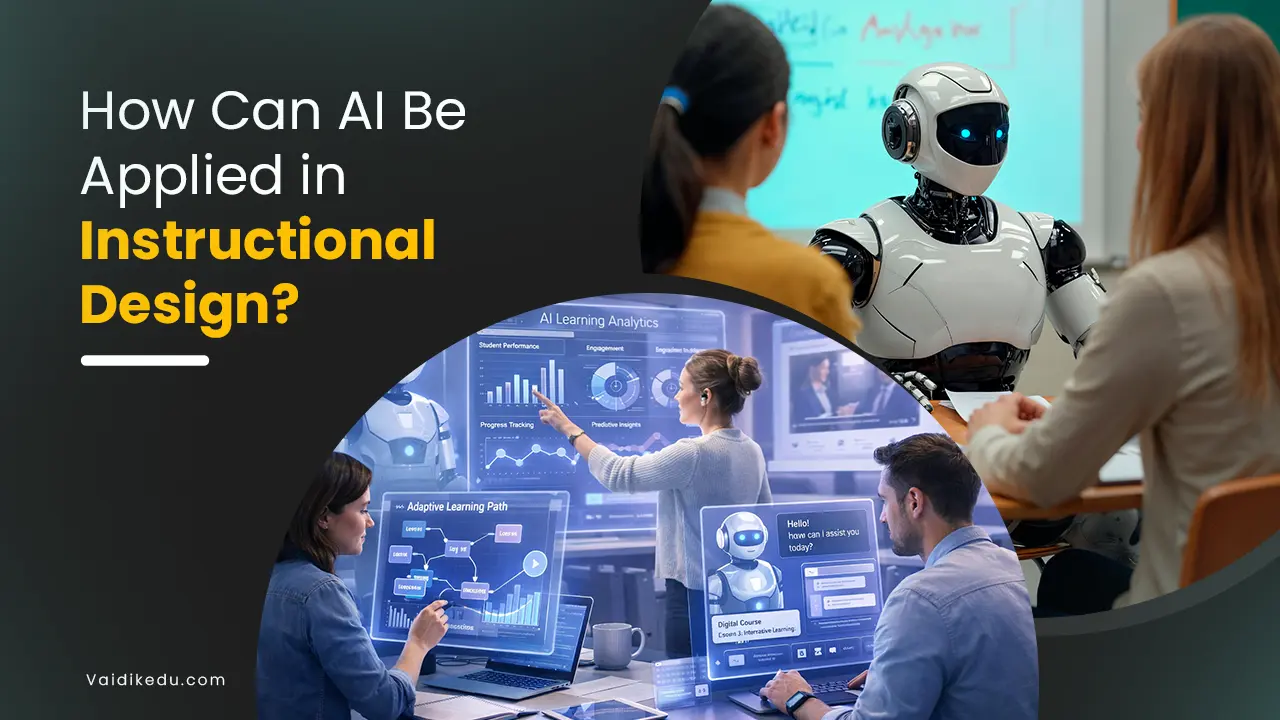Education has undergone tremendous changes in the past few years, where online tutoring emerged as a disruptive force. Though traditional classroom teaching is effective, it cannot possibly meet the changing needs of contemporary students.
With the aid of advanced technology, online tutoring presents a personalized, flexible, and accessible alternative for reshaping education. From interactive virtual classrooms to AI-driven learning platforms, online tutoring is overcoming the challenges of traditional education and opening doors to innovative possibilities.
This blog explores the transformative impact of online tutoring, its benefits, challenges, and the future of learning in a digital age.
Evolution of Online Tutoring
Online Tutoring is an ancient concept, but it was only valuable when technological aspects improved. Online platforms like Zoom, Microsoft Teams, and other learning apps have made one-on-one tutoring a global extravaganza. Students can now connect through subject matter experts from all over the world and access personally crafted resources for their needs at a pace they prefer.
Benefits of Online Tutoring
1. Personalized Learning
The most important value of online tutoring is its delivery of personalized learning. Tutors can be able to generate lesson plans following individual learning strengths and weaknesses based on styles and needs. They can adjust or modify content after using AI analysis of the child’s progress when using adaptive learning platforms.
2. Flexibility Convenience
This feature eliminates geographical and time barriers and provides the ability to learn anywhere and at any time. A student seeking math assistance might be a high school student, while another may be a working professional looking for some extra certifications.
3. Global Expertise Accessibility
Unlike the conventional learning process, where students can only learn from local tutors, online platforms provide access to global experts. This diversity enriches learning by exposing students to different perspectives and teaching methodologies.
4. Cost-Effective Solutions
Online tutoring often proves more affordable than traditional tutoring. Without the need for physical infrastructure or travel, platforms can offer high-quality education at competitive prices, making learning accessible to a broader audience.
5. Interactive And Engaging Tools
Modern online tutoring platforms take advantage of the most advanced tools like virtual whiteboards, video conferencing, gamification, and interactive quizzes that make learning more engaging and easier to remember for the students.
Online Tutoring: Challenges
1. Technology Accessibility
Online tutoring has made education accessible but is highly dependent on technology. A student who lacks a stable internet connection or a device cannot use these platforms effectively.
2. Student Engagement
Students get easily distracted in a virtual setting. Without the physical presence of a tutor, some students might not be motivated enough to keep their focus on the task.
3. Quality of Tutors
Not all online tutoring sites have rigid selection criteria for tutors. The quality and credibility of the tutors ensure quality education.
4. Security And Privacy Issues
Online businesses should ensure security and privacy. The protection of student data and safety in communication between the tutor and learner is of utmost importance.
5. Balancing Screen Time
Too much screen time leads to eye strain and fatigue. Equilibrium between online and offline activities will help the students maintain good health and well-being.
Breaking The Stereotype: Online Tutoring
The concept of online tutoring is now broader than being the usual bookworm. This can include developing skills in arts, vocational, and professional sectors:
- Creative Skills Development: platforms such as Skillshare and MasterClass feature online courses related to photography, design, music, and much more that enable a student to explore their creativity and fine-tune it.
- Vocational Training: Online vocational courses are practical training for careers like coding, graphic design, and digital marketing. These courses fill skill gaps and enhance employability.
- Professional Development: Corporate training platforms like LinkedIn Learning and Coursera enhance the skills of professionals, thus making them more competitive in their respective industries.
Social Impact of Online Tutoring
- Bridging Education Gaps in Crisis
In a crisis such as the COVID-19 pandemic, online tutoring saved the education sector, providing hope in the crisis period with schools closed and physical classes suspended. Millions of students rely on virtual learning to continue their studies. Such a shift of scenario simply underlined how resilient and adaptable an online tutoring model is.
- Decreasing Educational Inequality
Online tutoring overcomes educational inequalities by bridging underserved communities. Several organizations, amongst them UNICEF and smaller NGOs in local capacities have taken partnerships with digital platforms to engage in offering free or minimal-cost online coaching to students who never have access to regular education.
Emerging Issues
Online tutoring encompasses great benefits. However, its drawbacks must be considered for it to achieve its real value:
- Facilitating Digital Literacy: Students, parents, and teachers should all be digitally literate. Training programs and resources can help bridge the gap.
- Building Alternatives From An Offline Perspective: Hybrid models which go hand-in-hand with a potpourri of both online and offline models could offset some of the negatives associated with too much screen time and look all the better for it.
- Advanced Monitoring: Platforms require advanced monitoring tools to ensure that the tutors behave professionally and children receive quality education.
Governments And Private Organizations
Governments and private corporations are equally imperative in facilitating Internet access. It is also feasible that public-private partnerships might accelerate initiatives aimed at making digital learning accessible to marginalized societies.
Infrastructure will also be boosted by the governments in multiple manners, like very low-cost Internet facilities and diffusion of devices; thus online teaching will reach all students.
Meanwhile, the private sector may be able to innovate in various areas, for example, developing AI-based platforms or immersion learning technologies to make education engaging and effective.
Enabling Tutors in the Digital Era
Online tutoring is a new trend, and tutors need to be prepared for the digital environment. This includes learning how to use advanced tools, designing engaging lesson plans, and staying updated with technological trends. Training and certification programs for online tutors will ensure high teaching standards and credibility.
Online tutoring is not something that will be out of the scene soon; it is the backbone of the future of education. Online tutoring, by addressing the current challenges and leveraging emerging technologies, can build a more inclusive, effective, and dynamic educational landscape.
The journey of education is growing and will evolve rapidly with online tutoring at the fore, now unraveling how knowledge is shared and learned. Its impact will live on for generations in reshaping the world into learning for all.
Future of Online Tutoring
Online tutoring holds a lot of promise for the future, and growth is stimulated through advanced technological evolution and a high propensity toward adapting to flexible learning solutions. Some of the key trends are as follows:
1. AI And Machine Learning
In the future, online tutoring will be characterized by AI-based platforms. Such systems would provide hyper-personalized experiences of learning by analyzing the learner’s behavior, choice, and performance.
2. Virtual Reality And Augmented Reality
Immersive technologies, like VR and AR, would offer realistic learning environments that would enable students to explore virtual laboratories, historical sites, or even outer space right from their homes.
3. Gamification of Learning
Elements of gamification, such as leaderboards, rewards, and challenges, will keep serving as a motivator for even more engaging fun experiences in online tutoring. This type of approach will not only motivate the learner but also contribute to the retention of the learned material.
4. Focus on Soft Skills Development
Online tutoring websites will offer soft skills training in communication, teamwork, and critical thinking, preparing a student to meet the requirements of modern work.
5. Hybrid models of learning
In the future, education will be a fusion of online tutoring and classroom learning. It shall possess the best of both worlds: flexibility and personalization with a personal touch through in-person interactions.
Conclusion
Online tutoring is changing the educational landscape by making learning more accessible, flexible, and personalized. With its ability to address individual needs, provide global expertise, and utilize advanced technologies, online tutoring is shaping the future of education.
Though challenges such as access to technology and maintaining engagement continue to exist, the continuous evolution of digital platforms promises innovative solutions. With the arrival of the digital era, online tutoring will come to light as a means of making education more accessible and dynamic.
Frequently Asked Questions
Online tutoring refers to the teaching of students through the Internet. Students will reach tutors around the world using virtual sites.
It offers learner-centered learning, flexibility, global access to expertise, cost-effectiveness, and interactivity for overall quality improvement of the educational process.
It has some issues with access to technology, continued interest in sessions, validation of tutor qualifications, overcoming concerns over privacy, and cutting down time on the screen.









